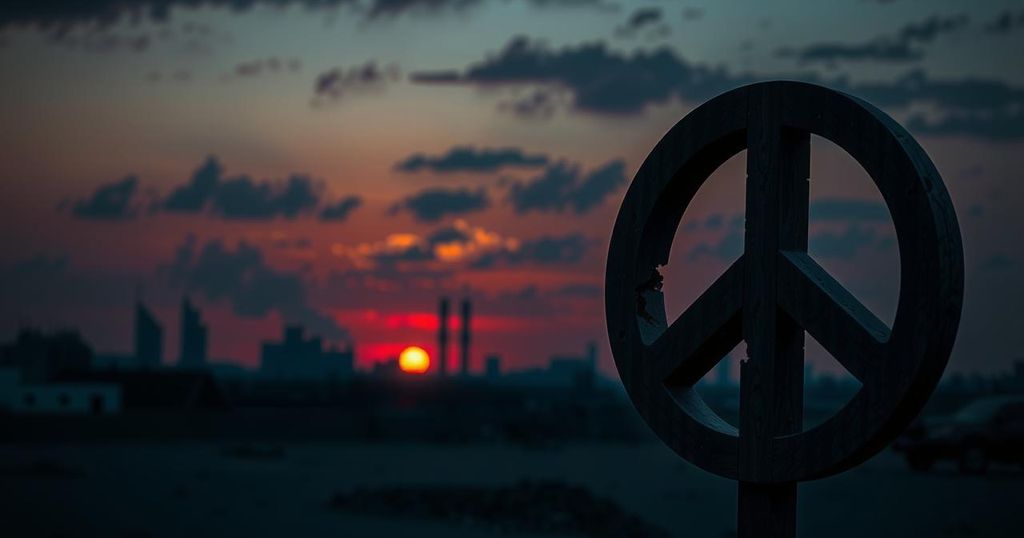Goma, Congo faces unrest as Rwanda-backed M23 rebels claim takeover, instigating fear among residents. Unconfirmed reports of military control bring uncertainty amid ongoing violence. The U.N. calls for M23 to retract its advances, while government officials declare a state of war with Rwanda. Mass evacuations ensue as civilians flee towards safety, highlighting the severe humanitarian crisis in the region.
Residents of Goma, the largest city in eastern Congo, faced uncertainty and fear as Rwanda-backed M23 rebels declared takeover on Monday morning. Gunfire echoed throughout the city, where groups of armed men were observed marching in juxtaposition to cheers from some local residents. The Congolese government has not verified the claims of a takeover, raising questions about authority in the region amidst escalating conflicts with rebels seeking dominance in the resource-rich area.
The M23 rebel group, which is supported by Rwanda, is one of many factions competing for control in North Kivu province. Having temporarily seized Goma in 2012, M23 resurfaced in late 2021 and has since gained traction. Despite Uganda and UN officials’ allegations of Rwanda’s involvement, the Rwandan government has consistently denied any support for the rebels.
The increasing violence threatens further instability in an already volatile region grappling with one of the world’s most severe humanitarian crises, displacing over six million individuals. U.N. reports indicate that more than one-third of North Kivu’s residents are among the displaced, exacerbating existing tensions as the situation deteriorates.
In response to the advancing rebels, the United Nations Security Council condemned the actions of M23 and urged a reversal of their territorial gains. The Council emphasized the importance of respecting the sovereignty of the Democratic Republic of the Congo and called for an end to the establishment of parallel administrations by the rebel group.
On Monday, as tensions amalgamated, M23 rebels announced their control over Goma. The rebels issued calls for Congolese military personnel to surrender their arms at a central stadium, while urging civilians to remain calm amid heightened security concerns. Meanwhile, government officials declared a state of war and denounced Rwanda’s actions as aggression, severing diplomatic ties.
The clashes have resulted in mass evacuations, with dozens of residents fleeing toward the Rwandan border. In the chaos, individuals like Safi Shangwe, shared stories of escaping violence, reflecting the fears gripping many civilians. The U.N.’s special representative stated the dire circumstances that left many trapped with airports closed and roads blocked.
The conflict has also led to the tragic loss of life among peacekeepers, with at least 13 U.N. personnel reported deceased in recent escalations. The ongoing mission of MONUSCO, which has been present in Congo for over twenty years, now includes around 14,000 peacekeepers deployed to stabilize the area as violence escalates.
The eastern Democratic Republic of the Congo has a long history of conflict involving numerous armed groups, often competing for control over mineral-rich regions. The M23 rebel group, having risen notably in past decades, has gained notoriety for its ties to neighboring Rwanda and involvement in hostilities against Congolese forces. The humanitarian impact of ongoing violence has resulted in millions of displaced individuals and a critical need for international attention and support.
The current situation in Goma reflects intense regional conflict with significant humanitarian implications, driven by the actions of the Rwanda-backed M23 rebels. As tensions escalate, there is an urgent necessity for international response to uphold peace and sovereignty in the Democratic Republic of the Congo, amidst growing concerns over regional stability and humanitarian crises affecting millions.
Original Source: apnews.com






